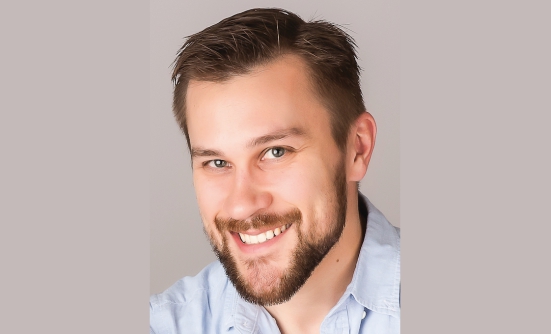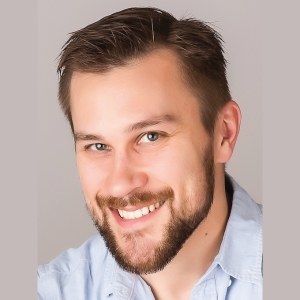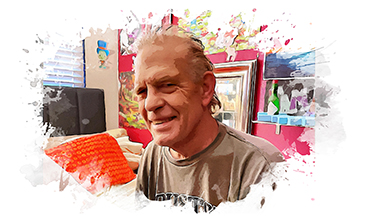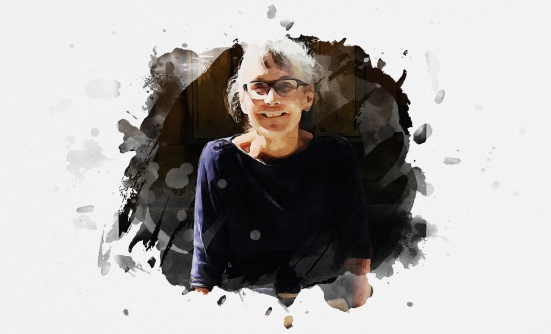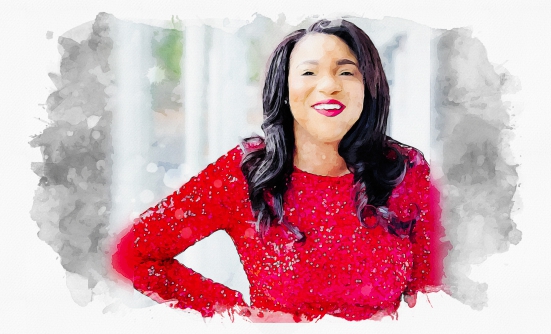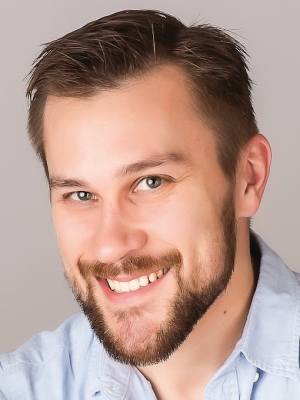
Three simple words that are not that simple: “You have cancer.” These 3 words instantly change you, completely turning your world upside down.
Invincible Ambition, and a Biopsy
At age 29, it was surely the last thing I could have imagined happening in my life. I was at the age of “invincible ambition,” having recently graduated from pharmacy school and residency training, being married to the love of my life and becoming new homeowners, and having a flourishing career as a clinical pharmacist and a professor.
It seemed impossible, but with a pathology-confirmed biopsy, the worst day of my life was August 19, 2013, when I was diagnosed with advanced, stage III bulky Hodgkin lymphoma.
For nearly 7 months I dismissed an increasing set of symptoms, including exhaustion, night sweats, and weight loss, to anything but cancer. Friends and family members would joke with me, saying it was simply me getting older.
Despite all my blood tests and lab test results coming back as normal, I was diagnosed with acute “mono,” sinusitis, and eventually pulmonary tuberculosis (TB) because of exposure to a patient at the hospital where I was working. When a few weeks after starting my treatment for TB a lymph node around my right clavicle became enlarged, it was finally possible to remove it and do a biopsy, which led to the confirmed diagnosis of lymphoma.
The Other Side
Being diagnosed with cancer as a healthcare provider was a surreal experience. Despite my training and knowledge of pharmacology and patient care, the moment I sat in the exam chair as a patient and looked at everyone in the room from a different perspective, all my confidence, knowledge, and stoic behavior was stripped away.
After my diagnosis, I vividly remember only 2 questions ran through my mind: Am I going to die? And, will I ever be a father?
Along with this new mindset, I was also hearing statistics and data from a new perspective, a patient perspective.
The 60% to 75% chance of remission or cure that I would often be stating as a pharmacist now flipped, and as a patient, I only heard the inverse: that I had a 25% to 40% chance of treatment failure, disease relapse, or death.
Dying at 29 from cancer was something I simply could not fathom or contemplate in any conscious way.
Risks and Rewards of Clinical Trials
After reviewing treatment options with my oncologist, my wife and I made the brave decision to enroll in a clinical trial. As a healthcare provider and researcher, I understood the reluctance of many patients to participate in clinical trials and research.
Despite the many unknowns that could arise when participating in a clinical trial, there is a chance that the trial would prove that the medication being studied could be something that vastly improves the cure rates for a certain cancer or patient outcomes.
I also reminded myself that clinical trials aim to improve the current standard of care for patients, and the treatment regimens that are now used as standard of care were once investigated in a clinical trial.
So, while we fully understood the risk of being randomized (assigned) to 1 of 2 treatment options that were being investigated in the clinical trial, we also acknowledged the bigger role every patient plays when participating in research, hoping to improve the current standard of care.
So I joined the clinical trial and on September 11, 2013, I began my first of 12 rounds of chemotherapy, which was given every 2 weeks for 6 months. Let me be frank: It was hell. Soon after losing my hair, I quickly learned how side effects are cumulative, and they got worse with each subsequent cycle of chemotherapy.
Nevertheless, on February 12, 2014, I received my last round of chemotherapy and was declared to be in complete remission, meaning there was no sign of lymphoma.
Containing Multitudes
Although chemotherapy and the cancer journey felt as if I was about to scale Mt. Everest, I also discovered a valuable lesson through this process.
As I continued treatment and spoke with fellow patients with cancer, I discovered a strange dichotomy. Despite the magnitude and challenge of being involved with such a devastating disease, I have yet to find one patient with cancer who wishes to be defined by that illness.
This certainly resonated with me. My aspiration to be a loving husband and father, as well as an eager preceptor and mentor, was the same after my diagnosis as it had been before. We can choose to live a life undefined by cancer.
It has been more than 8 years since I received my last dose of chemotherapy. Little did I know that survivorship and the subsequent PTSD (or post-traumatic stress disorder) that often occurs after remission would be as difficult as the chemotherapy itself. But with excellent patient advocacy and multidisciplinary care that I received, I was able to continue living my life to the fullest, and the cancer remains in complete remission.
In 2016, and then in 2018, my life changed again, as my wife and I became parents to 2 beautiful daughters. I consider myself extremely lucky and fortunate to continue with the life I had always dreamed of, even while battling cancer.
Telling My Story
After finishing my chemotherapy treatment, I have continued in my role as a patient advocate, and have recently published my memoir—Through the Eyes of Cancer—a compilation of journal entries I was keeping during my treatment and remission.
The stories, thoughts, and feelings I share offer a rare glimpse into the mind of a patient with cancer, and tell a story that is often unheard. My ultimate hope is to help caregivers, fellow patients, and healthcare providers understand a situation that is difficult for all of us to comprehend.
Although I work in the biotechnology field, the views and opinions in this article are entirely my own and do not necessarily reflect the views and opinions of my employer.





